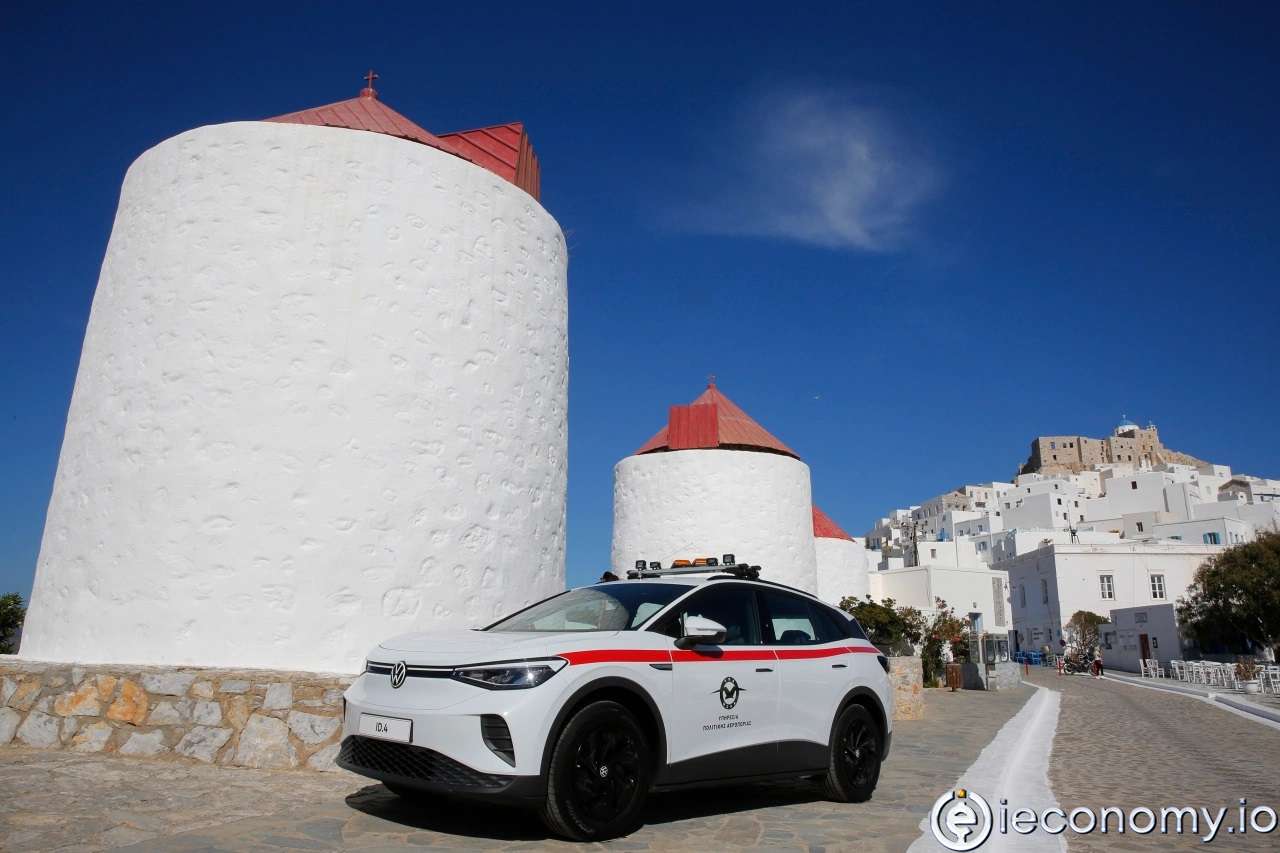2544
0
Volkswagen is turning the Aegean island into a smart e-paradise
The Greek government and Volkswagen have jointly given the go-ahead for the electrification of the Greek island of Astypalea.

Yazar: Tom Roberts
Yayınlanma: 8 Haziran 2021 11:17
Güncellenme: 2 Mart 2026 22:32
Volkswagen is turning the Aegean island into a smart e-paradise
The Greek government and the German car manufacturer Volkswagen have jointly given the go-ahead for the electrification of the Greek island of Astypalea. The first electric vehicles were put into operation on Wednesday - including the first fully electric police car in Greece. The aim is for Astypalea to gradually get a completely new transport system with e-cars, busses, scooters and e-bikes in the coming years, and to get its energy solely from green electricity in the future. Ridesharing services and car sharing are also intended to complement the so far hardly developed public transport system and make it more attractive. This is intended to reduce individual traffic. In total, Athens and VW want to invest around ten million euros on the island for this. The importance of the project extends far beyond Greece, emphasized Volkswagen. Astypalea is a "future laboratory for decarbonization in Europe", said Herbert Diess on the occasion of the celebratory project start, at which the group boss presented the first four electric vehicles of the types ID.3 and ID.4. They are used by local authorities such as the police, the municipal administration and the port police. These are the beginnings of a transformation that will fundamentally change Astypalea in the years to come. "On the island, we are researching in real time what motivates people to switch to e-mobility and what incentives are needed for the transition to a sustainable lifestyle." Prime Minister Kyriakos Mitsotakis recalled that Astypalea is known as the butterfly island, its outline on satellite images and maps resembles a butterfly. The butterfly is a good picture of the vulnerability of the planet threatened by climate change, he warned. "We don't have time, we have to act quickly." The project on the Aegean island is part of Greece's national development and resilience program "Greece 2.0", with which the country wants to set the course for climate neutrality and digitization. Just a few weeks ago, Prime Minister Mitsotakis announced that Greece would bring forward the phase-out of coal-fired power generation from 2028 to 2025. "What we are implementing in Astypalea points the way to a world that is greener, cleaner and more sustainable," said Mitsotakis on Wednesday. In order to gain specific knowledge from the planned transformation, the project is accompanied by a scientific study by the University of Strathclyde in Scotland and the Greek University of the Aegean. The aim is to focus on the residents of Astypalaia and their attitudes towards this change, but also to document the reactions of around 70,000 tourists who come to Astypalaia in the summer.İLGİLİ HABERLER





European stocks soared and focus shifted to German retail sales after Powell's speech!

Forex Signal For TRY/USD: Inflation Slowdown in November.

Forex Signal For GBP/USD: Bullish Trend Still Not Breaking While Recovery Continues.

Forex Signal For EUR/USD: Starry US Data Points to Higher Fed Increases.

Forex Signal For BTC/USD: Downside Continues as Bitcoin Recovery Moves Less.
En Popüler Haberler
Yorum Yap
Yorumlar
Henüz yorum yapan yok! İlk yorumu siz yapın...